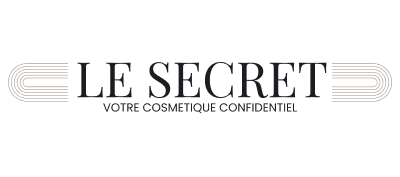
Dry, Oily or Combination Skin: Which Serum Should You Choose for Your Skin Type?
Finding the perfect serum can feel like a real challenge, especially with so many options promising hydration, glow, regeneration or fewer imperfections. To help you navigate this crowded world, it's essential to first understand your skin type — dry, oily or combination — and how to choose a serum that truly meets your skin’s specific needs.
In this article, we’ll guide you through choosing the right serum for your skin type, explain the characteristics of each, and compare conventional serums with highly concentrated, personalized formulas designed for visible, lasting results.
1. Know Your Skin Type
Before choosing any serum, it’s crucial to properly identify your skin type. Using the wrong formula can sometimes do more harm than good.
Dry Skin
Dry skin lacks both water and sebum. It often feels tight, rough, and may show signs of flaking or redness. The ideal serum should deliver deep hydration and help restore the skin’s barrier. Look for ingredients like hyaluronic acid, nourishing oils (argan, jojoba, rosehip), and soothing extracts like aloe vera or chamomile.
Oily Skin
Oily skin overproduces sebum, especially in the T-zone (forehead, nose, chin), and tends to develop shine, clogged pores and blemishes. The goal is to regulate oil production without stripping the skin. Ideal ingredients include salicylic acid, witch hazel, and zinc, which balance oil and prevent breakouts.
Combination Skin
Combination skin is tricky — it has both dry areas (usually the cheeks) and oily zones (mainly the T-zone). The best serums for this type are lightweight, non-comedogenic, and able to both hydrate and purify. Go for ingredients like hyaluronic acid, niacinamide, and gentle botanicals that balance the skin.
2. Key Ingredients for Each Skin Type
💧 Serums for Dry Skin
Must-have ingredients:
-
Hyaluronic Acid – draws and retains moisture in the skin for deep hydration.
-
Argan Oil – rich in fatty acids and vitamin E, ideal for nourishing and repairing.
-
Shea Butter – soothing and replenishing, restores skin comfort.
-
Ceramides – help rebuild the skin barrier and lock in moisture.
✨ Serums for Oily Skin
Ideal ingredients:
-
Salicylic Acid (BHA) – penetrates pores to clear excess sebum and fight breakouts.
-
Niacinamide – regulates oil production, calms redness, minimizes pores.
-
Zinc – antibacterial and sebum-regulating.
-
Green Tea Extract – soothes and rebalances oily skin with antioxidant properties.
🌿 Serums for Combination Skin
Recommended ingredients:
-
Hyaluronic Acid – hydrates without heaviness.
-
Niacinamide – balances oil while calming the skin.
-
Rosehip Extract – nourishes dry areas while remaining lightweight.
-
Salicylic Acid – purifies the T-zone without drying the cheeks.
3. Standard vs. Personalized Serums
Now that you understand your skin type, it’s time to explore the key differences between off-the-shelf serums and personalized skincare.
Standard Serums
These are designed for general concerns — hydration, brightness, anti-aging — but they don’t address your skin’s unique needs.
Pros:
-
Widely available in beauty stores and pharmacies
-
Easier to purchase
-
Often more affordable
Cons:
-
Not tailored to your skin’s specific needs
-
Risk of irritation or ineffectiveness
-
Often less targeted for deeper skin issues
Personalized Serums
At Le Secret Skincare, we take a different approach. Thanks to SkinSense™ technology, we create highly concentrated, tailor-made serums designed specifically for your skin type, lifestyle and environment.
Pros:
-
Made for your unique skin profile
-
Higher concentration of active ingredients
-
Better tolerance and reduced risk of side effects
-
Faster, more visible results
Cons:
-
Slightly higher price (but fully justified — and often less than you'd think)
-
Made to order, not ready-made on shelves
4. Why Choose a Personalized Serum?
The benefits are clear:
-
Higher efficacy thanks to optimal ingredient combinations
-
Fewer compromises, as only the essentials for your skin are included
-
More visible and lasting results without the trial-and-error of standard products
With Le Secret Skincare, personalization isn’t a luxury — it’s the new standard.
5. Conclusion: Find Your Perfect Serum
The right serum depends entirely on your skin type:
-
Dry skin → rich in hydration and nourishment
-
Oily skin → purifying, rebalancing, lightweight
-
Combination skin → targeted hydration + sebum control
And for truly optimized results, trust a customized formula crafted for your skin. It’s not just skincare — it’s self-care, redefined.
👉 Take your free SkinSense™ diagnostic today and discover the serum your skin was truly made for.
